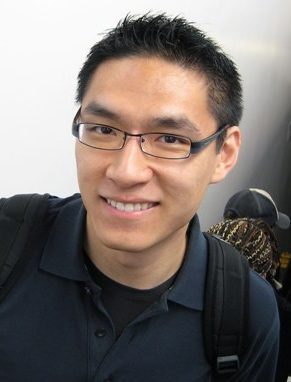Simon Lai

BA 2006: Economics and International Relations
MA 2008: Economics
Simon Lai currently spends his days conducting economic analysis on national defence, national security, and Crown Corporation issues on behalf of the Department of Finance for the Government of Canada. As an Economist, Simon’s work is quite closely related to his area of expertise – he graduated with an MA in Economics in 2008. Although Simon’s graduate economics degree was the stepping stone to his current position, UBC Arts Co-op helped lay a foundation of skills for Simon that, as he says, “can be applied towards any career choices.”
While an undergraduate student, Simon completed a variety of work terms: a Marketing Assistant position with the Vancouver Chamber Choir, a Technical Writer position with Silicon Chalk, and a Commercial Assistant position with Economical Insurance Group. Upon graduation, Simon was offered a job with the Bank of Canada as a research assistant, where he worked until returning to UBC to pursue his graduate studies.
Through his Arts Co-op work terms, Simon describes gaining writing, communication and multitasking abilities that are essential to any modern workplace. Co-op also gave Simon lots of job-hunting and interview practice, and he’s certain that this paid off after graduation: “I was surprised by how much I stood out against my fellow university graduates with my job-hunting, resume-writing and interviewing skills.”
Simon has a very Economics-based perspective on Co-op’s series of 4-month or 8-month placements: they maximize potential benefits and minimize potential losses for the student employee. “Think of the co-op program as an opportunity to make mistakes that don’t end up costing you dearly,” Simon states. In other words, a student might experiment with a position in a field new to them, or unrelated to their studies: if they love it, they have a potentially new career goal. If not, the student learned something about themselves and their likes and dislikes – and they can try something else after four months.
Simon has a message to prospective students: “seriously consider joining the program.” Regardless of your career path, it will “equip you with the necessary skills to function effectively in the real world.” Secondly, Simon says, “being a graduate of the Co-op program sets you apart from other graduates. You will have the skills and experience to prove to employers that you already know the ins and outs of the real world, and are head and shoulders above the other candidates.”
Simon Lai



BA 2006: Economics and International Relations
MA 2008: Economics
Simon Lai currently spends his days conducting economic analysis on national defence, national security, and Crown Corporation issues on behalf of the Department of Finance for the Government of Canada. As an Economist, Simon’s work is quite closely related to his area of expertise – he graduated with an MA in Economics in 2008. Although Simon’s graduate economics degree was the stepping stone to his current position, UBC Arts Co-op helped lay a foundation of skills for Simon that, as he says, “can be applied towards any career choices.”
While an undergraduate student, Simon completed a variety of work terms: a Marketing Assistant position with the Vancouver Chamber Choir, a Technical Writer position with Silicon Chalk, and a Commercial Assistant position with Economical Insurance Group. Upon graduation, Simon was offered a job with the Bank of Canada as a research assistant, where he worked until returning to UBC to pursue his graduate studies.
Through his Arts Co-op work terms, Simon describes gaining writing, communication and multitasking abilities that are essential to any modern workplace. Co-op also gave Simon lots of job-hunting and interview practice, and he’s certain that this paid off after graduation: “I was surprised by how much I stood out against my fellow university graduates with my job-hunting, resume-writing and interviewing skills.”
Simon has a very Economics-based perspective on Co-op’s series of 4-month or 8-month placements: they maximize potential benefits and minimize potential losses for the student employee. “Think of the co-op program as an opportunity to make mistakes that don’t end up costing you dearly,” Simon states. In other words, a student might experiment with a position in a field new to them, or unrelated to their studies: if they love it, they have a potentially new career goal. If not, the student learned something about themselves and their likes and dislikes – and they can try something else after four months.
Simon has a message to prospective students: “seriously consider joining the program.” Regardless of your career path, it will “equip you with the necessary skills to function effectively in the real world.” Secondly, Simon says, “being a graduate of the Co-op program sets you apart from other graduates. You will have the skills and experience to prove to employers that you already know the ins and outs of the real world, and are head and shoulders above the other candidates.”